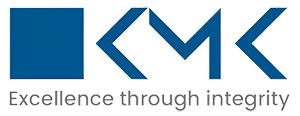How U.S. Businesses Should Vet an Outsourced Accounting Partner for Data Security Compliance

In today’s digitally interconnected world, the line between efficiency and exposure is razor-thin—especially for U.S. businesses handling sensitive financial records. As more organizations turn to outsourcing for cost savings and scalability, selecting the right outsourced accounting partner has become a decision that requires more than just comparing service costs or turnaround times.
Data breaches, cyberattacks, and regulatory penalties can be financially devastating and reputationally damaging. That’s why ensuring data security compliance when outsourcing your accounting or finance function is no longer optional—it’s critical.
So, how do you properly vet an outsourced accounting partner? And what should U.S. businesses look for in terms of compliance, credentials, and data governance?
Let’s break it down.
Why Data Security Compliance Matters in 2025
In an era of remote work, global vendors, and increasing regulatory scrutiny, financial data protection must sit at the heart of every outsourcing conversation. From bank reconciliations and payroll processing to tax returns and fund accounting, outsourced teams are routinely handling highly sensitive data.
A single lapse can expose not just your numbers—but your business, investors, and employees—to risks including:
- Regulatory fines under U.S. data privacy laws
- Identity theft or fraud
- Loss of client or investor trust
- Cyber insurance premium hikes or denial of coverage
That’s why strong data security compliance must be a non-negotiable baseline for any outsourced accounting partner serving U.S. businesses in 2025.
The SOC 2 Standard: Why It Matters
One of the most universally accepted benchmarks of trust for service providers is SOC 2 certification (System and Organization Controls). Issued by independent auditors, this framework ensures that a service organization securely manages client data based on five “Trust Services Criteria”:
- Security
- Availability
- Processing Integrity
- Confidentiality
- Privacy
For U.S. businesses, a partner with a valid SOC 2 certification is signaling their commitment to safeguarding data and following strict information security protocols. This is especially important in financial services, where third-party risk is closely scrutinized by auditors, regulators, and investors.
Ask prospective vendors:
- Are you SOC 2 Type I or Type II certified?
- When was your last audit performed?
- Will you provide the latest report for review?
If they hesitate, that’s a red flag.
Questions U.S. Businesses Should Ask Before Signing
To thoroughly vet an outsourced accounting partner, U.S. businesses should go beyond brochures and sales pitches. Here are key questions that reveal a vendor’s true security posture:
- What compliance frameworks do you follow?
Look for alignment with U.S.-based standards like SOC 2, GDPR (if dealing with European clients), HIPAA (if in healthcare), or ISO/IEC 27001.
- Do you conduct employee background checks and training?
A secure environment starts with people. Verify if the partner screens staff and trains them in financial data protection and cybersecurity.
- What data encryption protocols are in place?
Sensitive files—whether in transit or at rest—must be protected with bank-grade encryption and secure file-sharing tools.
- Can you isolate U.S. client data?
U.S. businesses may need their data to be stored or processed in specific geographies. Ask about data residency and segregation.
- Do you have an incident response plan?
Ask for documented processes for breach notification, remediation, and reporting. A competent outsourced accounting partner will have this ready.
Red Flags to Watch Out For
Even if a provider seems qualified on paper, look for these warning signs:
- No third-party audits or missing SOC 2 certification
- Vague or evasive answers about cybersecurity policies
- Use of free or consumer-grade tools for financial tasks
- Lack of dedicated compliance or IT security staff
- No cyber liability insurance coverage
These indicators suggest poor adherence to data security compliance and put U.S. businesses at risk of legal and financial fallout.
Read Also: Top Cybersecurity Best Practices for U.S. Accounting Firms Managing Client Financial Data in 2025
Partnering with KMK: Your Compliance-Focused Accounting Team
At KMK, we understand that outsourced accounting is not just about saving money—it’s about building trust.
That’s why we have invested heavily in:
- Enterprise-grade infrastructure for financial data protection
- Rigorous internal controls aligned with SOC 2 certification
- Employee security training and documented SOPs
- Encrypted workflows and restricted access permissions
- Scalable solutions tailored for U.S. businesses, CPA firms, startups, and PE-backed companies
As your outsourced accounting partner, KMK acts as a secure, compliant extension of your finance team—so you can focus on growth without risking exposure.
Final Thoughts
When choosing an outsourced accounting partner, don’t just ask “Can they do the work?” Ask “Can they protect my business while doing it?” In 2025, U.S. businesses must treat data security compliance as a strategic priority—not just a checkbox. From SOC 2 certification to breach response planning, your partner’s security posture is directly tied to your firm’s operational and reputational stability. Still not sure what to ask or how to evaluate your current partner? That’s where KMK comes in. We combine deep financial expertise with a security-first mindset, giving U.S. businesses the peace of mind they deserve.
 Dev Kothari, a seasoned leader at KMK, heads the Special Teams, where he leverages his extensive expertise in managing large-scale accounting and tax return processing for U.S.-based clients. With a keen eye for workflow optimization and stakeholder collaboration, Dev drives exceptional efficiency and quality in high-volume project delivery. As a dual-qualified CPA (AICPA, Arizona) and Chartered Accountant (ICAI), Dev’s blend of strategic insight and technical prowess positions him as a key asset in ensuring KMK’s clients consistently achieve their financial goals.
Dev Kothari, a seasoned leader at KMK, heads the Special Teams, where he leverages his extensive expertise in managing large-scale accounting and tax return processing for U.S.-based clients. With a keen eye for workflow optimization and stakeholder collaboration, Dev drives exceptional efficiency and quality in high-volume project delivery. As a dual-qualified CPA (AICPA, Arizona) and Chartered Accountant (ICAI), Dev’s blend of strategic insight and technical prowess positions him as a key asset in ensuring KMK’s clients consistently achieve their financial goals.
Let’s Take Our Conversation Ahead
KMK is a top outsourced accounting and tax service provider. We offer end-to-end accounting and tax services for small to mid-sized businesses, with a team of 875+ professionals, including certified public, chartered, and staff accountants.
USA:
651 N Broad St Suite 205, Middletown, DE 19709, USA
Phone: 310-362-2511
India:
300, Sankalp Square-3B
Sindhu Bhavan Marg,
Ahmedabad, Gujarat 380058
For Career: 91-98240-42996
Developed by Bluele | Copyright © 2026 | KMK Ventures Private Limited. | All Rights Reserved


